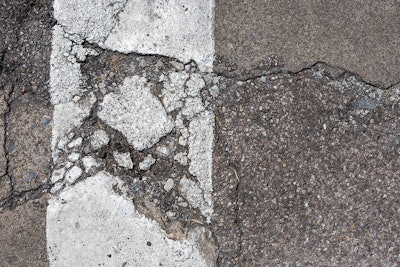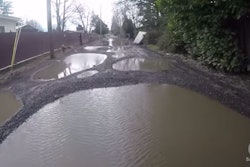
The study led by Rutgers University’s School of Engineering determined that extending the life of pavement when it reaches early stages of failure can reduce greenhouse gases, particularly carbon-dioxide, which are blamed for contributing to climate change.
“Pavement preservation leads to significant environmental benefits due to the improved surface condition, which results in smooth pavement, saves energy and reduces user costs,” says study lead author Hao Wang, associate professor in the Department of Civil and Environmental Engineering at Rutgers University-New Brunswick.
The study determined that a thin asphalt overlay of up to 2 inches reduced carbon-dioxide emissions by 2 percent, the most of the repair methods studied. Researches attributed the emissions reduction to the overlay’s ability to reduce road roughness. The study also examined using chip seal, slurry seal and crack seal methods. Crack seals with rubberized asphalt or polymer-modified asphalt with filler yielded the lowest reduction of emissions, at half a percent.
Along with reducing emissions, the study determined that such smoother surfaces reduce spending by 10 to 30 percent for transportation agencies and save drivers 2 to 5 percent in fuel consumption, tire wear, vehicle repair and maintenance costs.
Researchers hope transportation agencies will use the study to factor in environmental considerations when making road maintenance decisions.
The study was published January 11 in the International Journal of Sustainable Transportation. It included researchers at the Rutgers School of Engineering and their collaborators at North Dakota State University and Al-Mustansiriyah University in Iraq.










